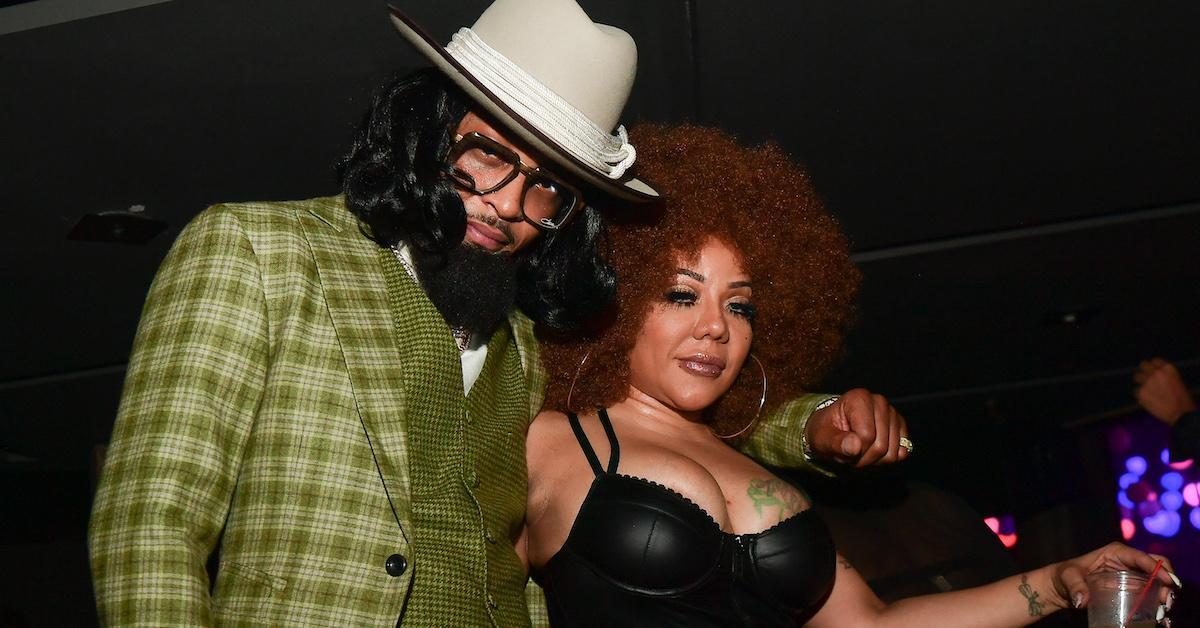
New York considers banning “virginity testing” following T.I.'s comments about daughter
By Mark PygasDec. 5 2019, Updated 8:07 a.m. ET
Back in November, rapper T.I. revealed he takes overprotective fatherhood to a new level of gross and inappropriate. The 39-year-old admitted to taking his 18-year-old daughter, Deyjah Harris, for a "virginity test" to make sure her hymen is intact.
"Deyjah’s 18, just graduated high school now and she’s attending her first year of college, figuring it out for herself,” he said. “And yes, not only have we had the [sex] conversation, we have yearly trips to the gynecologist to check her hymen,” the rapper said.

Just about everyone was surprised by the admission, especially considering that some women are born without a hymen and for many women they can "break" from activities other than sex because they vary in size, thickness, and elasticity.
"Virginity is NOT a physical entity," Dr. Verena Brown, MD wrote in a viral post at the time. "It is a social construct, a tool by which women have been kept powerless and shamed for centuries."
Brown went on to explain: "Studies show that women who were pregnant and women who have never had sex have identical looking hymens."
And as a result of the controversy surrounding T.I.'s admission, lawmakers in the state of New York are currently considering outlawing virginity testing saying that the practice is "bogus and unsupported by evidence” and a violation of women's rights.

According to the New York Times, Assemblywoman Michaelle C. Solages, a Democrat, introduced the bill because of T.I.'s comments.
“It made me angry and I was just very upset,” she said. “To use your platform to say that you did this is just misogynistic and it sets the women’s movement back.”
The bill has three co-sponsors in the Assembly and Senator Roxanne J. Persaud, another Democrat, has also introduced a companion bill in the State Senate.
The legislation would prevent medical practitioners from performing virginity examinations, and would penalize those who breach the ban. If a virginity test were conducted outside of a medical setting, it would be considered sexual assault.
“The invasive procedure of a virginity examination violates the sanctity and purity of a female,” Persaud said. “Whether a child or adult, this breaches not only moral grounds, but also the privacy entitled to a female and their doctor.”

The United Nations World Health Organization (WHO) called for the practice to be banned by member nations in 2018, saying that the test could be considered a violation of human rights.
"'Virginity testing'" has no scientific or clinical basis," the WHO stated. "There is no examination that can prove a girl or woman has had sex – and the appearance of girl’s or woman’s hymen cannot prove whether they have had sexual intercourse, or are sexually active or not."
"'Virginity testing' is a violation of the human rights of girls and women, and can be detrimental to women’s and girls’ physical, psychological and social well-being."
"'Virginity testing' reinforces stereotyped notions of female sexuality and gender inequality. The examination can be painful, humiliating and traumatic. Given that these procedures are unnecessary and potentially harmful, it is unethical for doctors or other health providers to undertake them. Such procedures must never be carried out."
